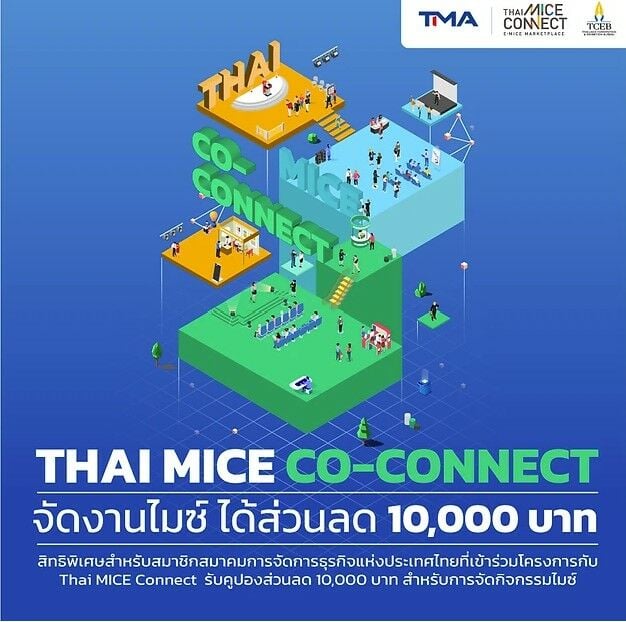Thai MICE boom faces hurdles next year

Thailand‘s MICE (Meetings, Incentives, Conventions, and Exhibitions) industry, once on the brink, surged back to 80% of its 2019 glory this year, however, a looming slowdown in 2024 raises eyebrows.
Thailand’s MICE industry is poised for a remarkable recovery, reaching 80% of its pre-pandemic revenue in 2019. President of Thailand Incentive and Convention Association (TICA), Sumate Sudasna, highlights Thailand’s allure as a MICE haven, attributing it to top-notch business facilities. The exhibition sector, outpacing its counterparts, witnessed a swift rebound this year as companies sought rapid transactional closures at trade events.
Sumate notes the resurgence in corporate meetings and incentives, fuelled by the desire for face-to-face interactions. However, the crystal ball for 2024 clouds as pent-up demand wanes. The TICA president identifies challenges like the Ukrainian and Gaza conflicts impacting European business travel, particularly from vital leisure markets like Poland and Israel.
Despite the US Federal Reserve signalling reduced interest rates, the global spending pulse remains uncertain. The pace at which companies worldwide loosen their purse strings will significantly impact business travel, adding another layer of unpredictability to Thailand’s MICE landscape.
Sumate forecasts a shift in the driving force of Thailand’s MICE industry next year, with regional markets taking the lead. Southeast Asia and India, buoyed by visa exemption policies, are expected to steer the ship through potential rough waters in the coming year, reported Vietnam Plus.
The MICE revenue forecast for the Thailand Convention and Exhibition Bureau (TCEB) has been lowered to 96 billion baht. This is less than half the recorded figures for 2019, mainly due to a sluggish response from the Chinese market. TCEB’s president, Chiruit Isarangkun Na Ayuthaya disclosed that despite the strong comeback of MICE travellers from Europe, India, and South East Asia, the return of the Chinese market is essential in meeting previous projections.
As the demand for on-site MICE activities recovers following the pandemic, Asian countries are preparing their exhibition venues and marketing strategies to welcome international visitors. Northeast Asia has shown significant enthusiasm, with South Korea’s Busan bidding for the World Expo 2030 and Hong Kong unveiling the West Kowloon Cultural District, a 40-hectare area designed to attract both leisure and Mice visitors.
Latest Thailand News
Follow The Thaiger on Google News:


























